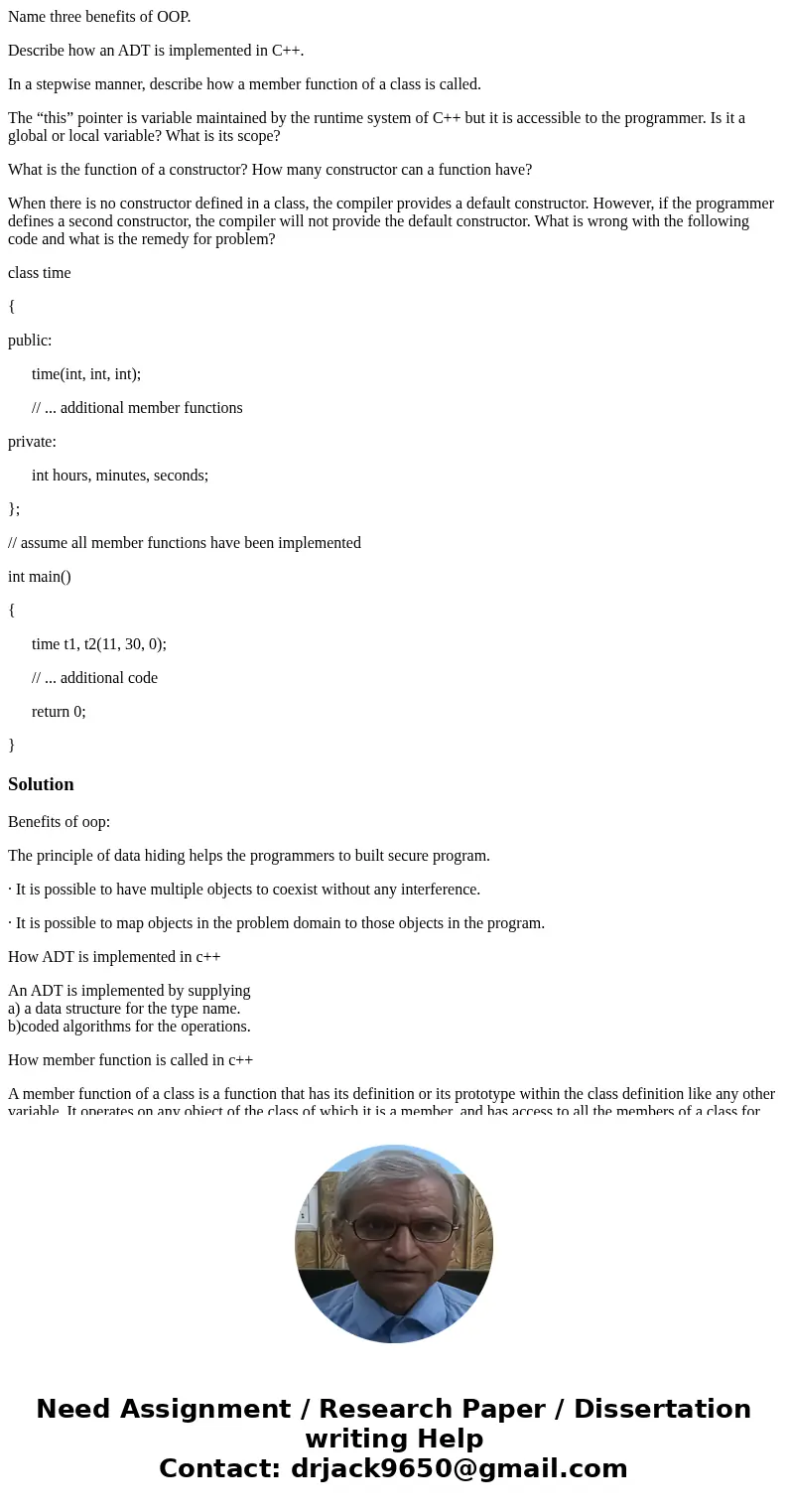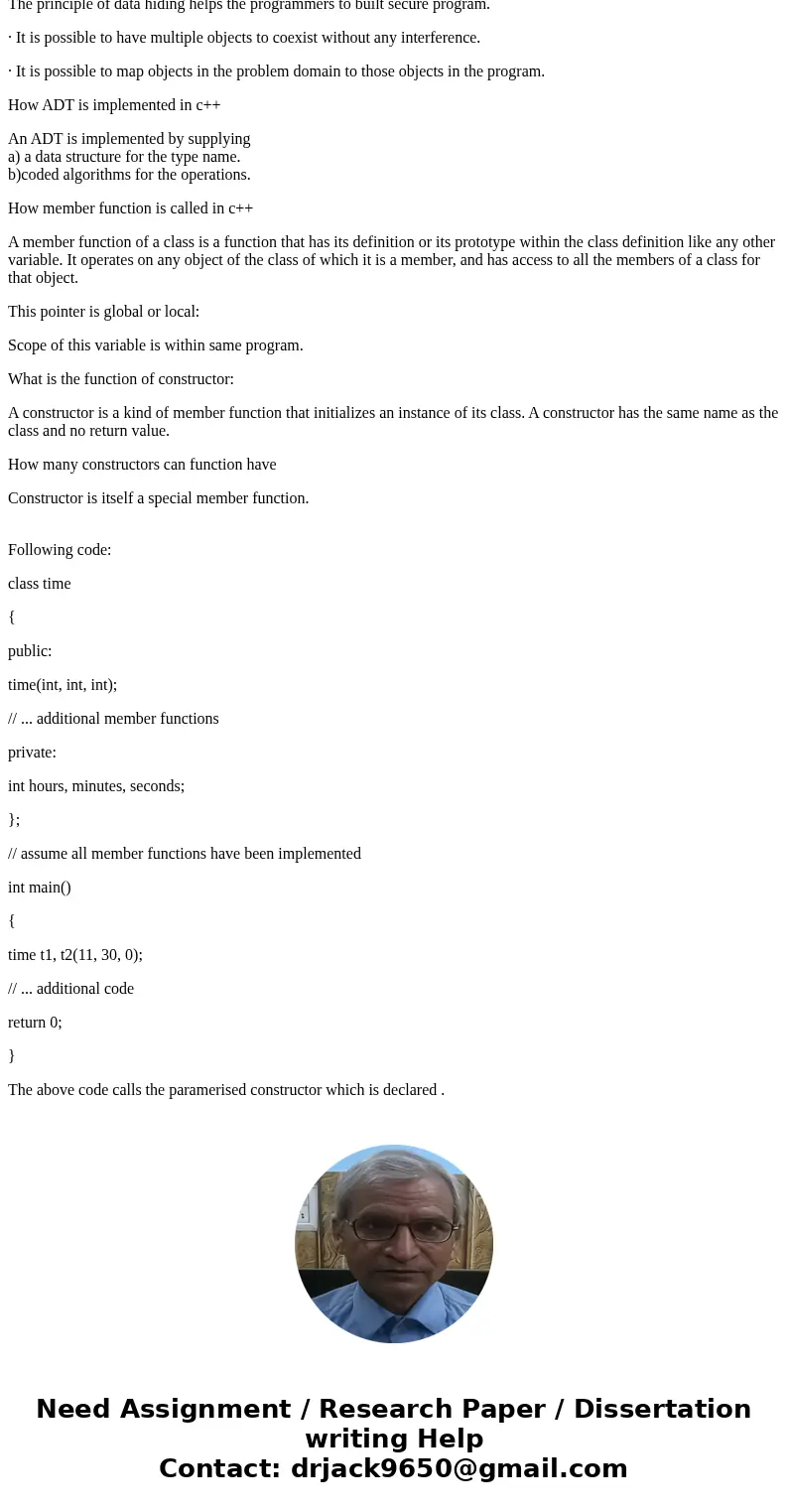Name three benefits of OOP Describe how an ADT is implemente
Name three benefits of OOP.
Describe how an ADT is implemented in C++.
In a stepwise manner, describe how a member function of a class is called.
The “this” pointer is variable maintained by the runtime system of C++ but it is accessible to the programmer. Is it a global or local variable? What is its scope?
What is the function of a constructor? How many constructor can a function have?
When there is no constructor defined in a class, the compiler provides a default constructor. However, if the programmer defines a second constructor, the compiler will not provide the default constructor. What is wrong with the following code and what is the remedy for problem?
class time
{
public:
time(int, int, int);
// ... additional member functions
private:
int hours, minutes, seconds;
};
// assume all member functions have been implemented
int main()
{
time t1, t2(11, 30, 0);
// ... additional code
return 0;
}
Solution
Benefits of oop:
The principle of data hiding helps the programmers to built secure program.
· It is possible to have multiple objects to coexist without any interference.
· It is possible to map objects in the problem domain to those objects in the program.
How ADT is implemented in c++
An ADT is implemented by supplying
a) a data structure for the type name.
b)coded algorithms for the operations.
How member function is called in c++
A member function of a class is a function that has its definition or its prototype within the class definition like any other variable. It operates on any object of the class of which it is a member, and has access to all the members of a class for that object.
This pointer is global or local:
Scope of this variable is within same program.
What is the function of constructor:
A constructor is a kind of member function that initializes an instance of its class. A constructor has the same name as the class and no return value.
How many constructors can function have
Constructor is itself a special member function.
Following code:
class time
{
public:
time(int, int, int);
// ... additional member functions
private:
int hours, minutes, seconds;
};
// assume all member functions have been implemented
int main()
{
time t1, t2(11, 30, 0);
// ... additional code
return 0;
}
The above code calls the paramerised constructor which is declared .


 Homework Sourse
Homework Sourse